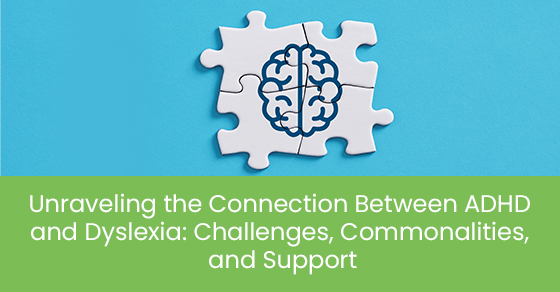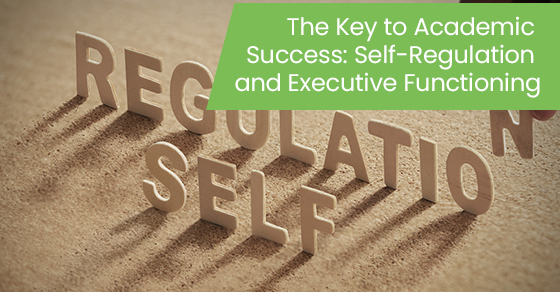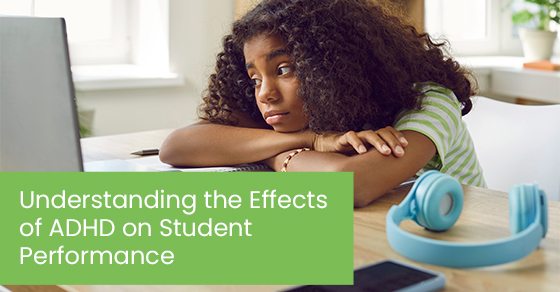Attention deficit hyperactivity disorder (ADHD) and dyslexia are two neurodevelopmental disorders that frequently coexist, leading to unique challenges for people who experience both conditions simultaneously (a phenomenon known as “comorbidity”). Having both ADHD and dyslexia can make it hard for a student to have their specific learning and attention needs addressed. Research has identified strong genetic and cognitive overlap between the two conditions, with estimates that 25 to 40% of affected people share both disorders. Both ADHD and dyslexia run in families. The siblings of students with dyslexia have a 50% chance of sharing the disability. While difficulties with attention and focus may be seen in both conditions, the underlying cognitive processes involved may differ.
ADHD is characterized by persistent patterns of inattention, hyperactivity, and impulsivity that interfere with daily functioning and activities. There are three main subtypes of ADHD:
Predominantly Inattentive: Individuals with this subtype struggle with sustaining attention, following through on tasks, and often appear forgetful or disorganized.
Predominantly Hyperactive-Impulsive: This subtype is marked by hyperactivity and impulsivity without significant inattention.
Combined: This is the most common subtype, featuring a combination of both inattention and hyperactivity-impulsivity.
The primary hallmark of dyslexia is a phonological processing deficit, meaning individuals with dyslexia struggle with recognizing, breaking down, and manipulating the sounds of spoken language, which can affect their ability to map sounds to letters and words. Dyslexia primarily affects language-related skills, and students with the disability have trouble reading and comprehending material and retrieving the correct words. People with dyslexia can also experience problems with spelling and memorization. While the symptoms of ADHD are often apparent from an early age, dyslexia is more subtle, and may not become visible until Grade 4 or 5, when students need to begin applying their reading skills.
According to the International Dyslexia Association, people with ADHD and dyslexia share similar characteristics. For example, both may have difficulty paying attention. Dyslexic students may tire easily when trying to read because of the demands on their concentration, while students with ADHD have trouble commanding their attention when the reading task at hand is not stimulating. The dyslexic child may have challenges with accuracy because they are misreading words, while the child with ADHD may be skipping over text, ignoring punctuation, and moving on to the next sentence without finishing the first, also resulting in poor comprehension. Both types of students may avoid reading all together because they find it unenjoyable. Students with either condition can also have trouble with handwriting,
organization, and proofreading. Despite being intelligent and motivated learners, students with dyslexia and ADHD are likely working harder than their peers to achieve mediocre results in school.
Students with ADHD and dyslexia also frequently share a weakness in rapid automatized naming (RAN), a cognitive skill that relates to the ability to name a series of familiar items quickly and accurately, such as colors, objects, numbers, or letters. RAN is often used as a measure of cognitive and language processing speed, particularly in the context of reading and language development. RAN tasks require both attention and working memory to maintain and manipulate information temporarily—skills that are weak for students with ADHD and dyslexia.
Relationships Between Dyslexia, ADHD, and Executive Functions
Both dyslexia and ADHD can be associated with executive function deficits, which are a set of cognitive processes that encompass various higher-level mental functions, including:
Inhibition: The ability to control impulses and override automatic responses
Working Memory: The capacity to hold and manipulate information in one’s mind
Cognitive Flexibility: The ability to adapt to changing circumstances and switch between tasks or mental sets
Planning and Organization: The capacity to set goals, create plans, and organize steps to achieve those goals
Problem Solving: The ability to identify, analyze, and solve complex problems
Executive functions play a crucial role in regulating behavior, making decisions, and managing daily tasks efficiently. In individuals with ADHD, these deficits are often more pronounced, affecting their ability to plan, organize, and sustain attention on tasks. In dyslexia, executive function deficits may relate more to difficulties in working memory and processing speed during reading-related tasks. It’s also not uncommon for people with dyslexia or ADHD to have other comorbid conditions, such as anxiety or depression, which can further complicate the clinical picture and require tailored interventions.
Effects on Student Learning and Academic Progress
Students who have both ADHD and dyslexia often struggle in school.
Working Memory Impairments: Both ADHD and dyslexia can affect working memory, making it challenging for people to follow multi-step instructions or retain information during tasks.
Reading Difficulties: Dyslexia primarily affects reading and spelling skills. Students with dyslexia may struggle with phonemic awareness, decoding words, and reading fluency. This can hinder their ability to comprehend texts and perform well in subjects that require extensive reading.
Inattention in the Classroom: ADHD-related inattention can lead to difficulties in following classroom instructions, taking notes, and completing assignments. Students with ADHD may also find it challenging to stay organized and manage their time effectively.
Impulsivity and Task Completion: Impulsivity can hinder students with ADHD in completing assignments and tests accurately. They may rush through tasks, make careless errors, and have difficulty staying focused on more extended tasks.
Low Self-Esteem: Struggling with reading and classroom tasks can lead to poor self-esteem and lack of self-confidence in both individuals with dyslexia and those with ADHD. These negative emotions can further affect their motivation and academic engagement.
Supporting Students with ADHD and Dyslexia
Early identification and intervention are crucial for addressing both conditions. Schools and parents should work together to identify signs of ADHD and dyslexia and provide appropriate support, including specialized instruction and accommodations.
Individualized Education Plans (IEPs): Students with both ADHD and dyslexia often benefit from IEPs that cater to their unique needs. These plans can include extended time for assignments and tests, preferential seating, and access to assistive technology.
Behavioral Interventions: Interventions such as positive reinforcement, time management strategies, and mindfulness exercises can help students with ADHD manage impulsivity and improve focus.
A Collaborative Team: A collective approach involving educators, parents, and specialists is essential. Regular communication ensures that strategies are consistent at school and home.
Pharmacological Intervention: In some cases, medication may be prescribed to manage the symptoms of ADHD. It’s crucial for parents and health care professionals to carefully weigh the risks and benefits of medication and monitor its effects closely.
The connection between ADHD and dyslexia is complex and often perplexing; however, with early identification, appropriate interventions, and a supportive community of educators, parents, and specialists, individuals with these dual diagnoses can thrive academically and in their personal lives.
At Evoke Learning, we offer reading remediation programs for at-risk students that address reading deficits and facilitate reading acquisition in both French and English. All our services are individualized and offered one-to-one. Our practitioners have experience working with exceptional learners and use interactive tools and resources to engage them. Most of our clients struggle with self-regulation and our practitioners are experts in meeting their needs. Contact us to learn more about how our tutors and coaches can help your student unlock their full potential.
Books to Explore
Overcoming Dyslexia: A New and Complete Science-Based Program for Reading Problems at Any Level by Sally Shaywitz, MD
This book provides an in-depth understanding of dyslexia and offers practical strategies for parents, teachers, and individuals with dyslexia.
Smart but Scattered: The Revolutionary Executive Skills Approach to Helping Kids Reach Their Potential by Peg Dawson and Richard Guare
This book offers valuable insights into executive functioning difficulties and provides strategies to support students with ADHD and related challenges.
The Dyslexic Advantage: Unlocking the Hidden Potential of the Dyslexic Brain by Brock L. Eide and Fernette F. Eide
Exploring the strengths associated with dyslexia, this book provides a positive perspective and strategies for capitalizing on these strengths.
Taking Charge of ADHD: The Complete, Authoritative Guide for Parents by Russell A. Barkley
This comprehensive guide offers parents and educators a deep understanding of ADHD and practical advice for managing its effects on children’s lives.


